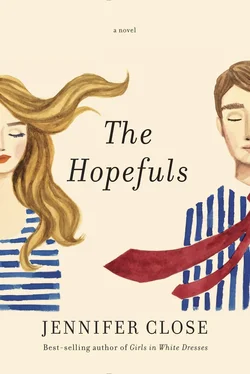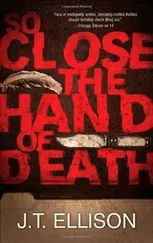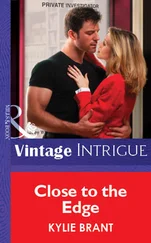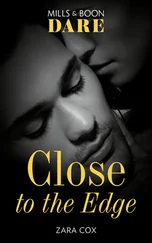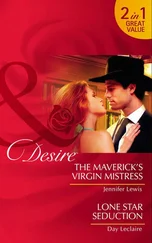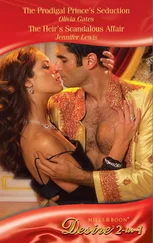I hated the helicopters that buzzed overhead, like we were in some sort of war zone. I hated how the motorcades stopped traffic, halted the Metros, and clogged up the streets, usually when you were running late to get somewhere.
I hated how young everyone was, especially on the Hill, how they walked around all doughy and baby faced, wearing suits that their mothers had bought for them, thrilled with the fact that they’d accepted a salary of $23K to work for ten hours a day. I hated that they were all so eager, ready to tell you about their passion — healthcare or Planned Parenthood or clean water — whether you asked or not. I hated the way people dressed, in collared shirts and knee-length skirts, muted suits and sensible ties. I hated that all the women looked like they’d just left an Ann Taylor store (and I hated that most likely, they probably just had). I hated that so many women wore sneakers and socks with their suits while they commuted, as if it were still 1987. I wanted to pull them aside and tell them that there was no need for this, that there were very comfortable ballet flats out there they could wear instead.
I hated the way that everyone wore their ID cards around their necks and tucked into their front suit jacket pockets, so that the only things visible were the lanyards, just so they could let you know that they were very important people who worked at very important places.
I hated how the cabs were always dirty, how they took only cash, and how the drivers never seemed to know where they were going. I hated that you couldn’t order takeout past 10:00, unless you wanted pizza from a questionable place. I hated that I had to drive to get decent groceries, that there weren’t any good neighborhood stores. I missed our neighborhood bodega. I missed it every day.
—
That night, after Matt had made three trips to retrieve the groceries from the car, he unpacked them and made grilled cheese for dinner. He insisted that I stay on the couch, and brought me a glass of wine. “For my little driver,” he said. “My master of direction.” He sat down next to me and ran his hand over my hair. “It’ll get better, Buzz. I promise.” When we’d first started dating, I told Matt how my parents used to call me Busy Bee as a child, which he thought was hilarious. He started calling me that as a joke, then it turned into Buzzy Bee, and then Buzzy, and then just Buzz, which sounded more like a nickname for a large, bald man and less like a term of endearment. But it stuck.
“Thank you,” I said. “That’s why I love you.”
I tried not to take Matt’s kindness for granted, tried to appreciate it. It wasn’t always a given that I’d marry someone like this, especially because I spent most of college dating (and I use that term loosely) a guy named Justin Henry, who once told me about a recent date he’d gone on while I was lying naked in his bed and once walked right by me on the street — just completely ignored me and continued down the sidewalk.
Not long after Matt and I were married, I’d said something about craving Indian food and he’d said, “Let’s do it,” even though he hated Indian food. When I asked him if he was sure, he’d said, “Whatever makes you happy.” It was so easy for him, so simple. He wanted me to be happy and he’d do anything (even eat naan for dinner) to make it happen. For him, kindness was a reflex, and I envied that. I wanted it to be the same for me, to automatically put his wants first. But most of the time I had to remind myself to reciprocate, the way a socially awkward person struggles to remember appropriate topics of conversation.
—
That night, I ate my grilled cheese and told Matt all the things I hated about DC. I wanted him to understand how I felt, but he just told me it was impossible to hate that many things. “It’s not impossible,” I told him. “It’s hard. And it takes a lot of energy, but it’s not impossible.”
Matt looked at me like he wasn’t sure what to say. He rubbed my leg. “Do you want some more wine?” he asked, and I nodded. He got up to fill my glass, and I pulled a blanket off the back of the couch and covered myself with it, curled my legs underneath me, suddenly tired.
When he handed me my wine, he leaned down to kiss me. “Maybe,” he said, “if you try to hate it here a little less, you eventually will.”
“I doubt it,” I said.
“But maybe you could try it.”
“I could,” I said. But I didn’t say that I would.
I met my husband at Dorrian’s, a bar on the Upper East Side, right around the corner from the railroad apartment I shared with three friends from college. The bar was infamous for being the place where the Preppy Murderer met his victim before he lured her to Central Park. You’d think any association with murder would make a bar unpopular, but you’d be wrong. Every night, it was crowded with twentysomethings who were new to the city. When “Sweet Caroline” played, the whole place pumped their fists, smacked their palms on the tables, and chanted, “So good, so good, so good.”
We met in October 2001, and the amazing part about that night wasn’t that we found each other in a big city, or that we wound up at the same bar at the same time — it’s that I’d gone out at all. I arrived in New York in July, moved into the tiny apartment that took more than half of my paycheck, and for a couple of months, everything was great. I was an editorial assistant at Vanity Fair, for a theatrical and judgy gay man, who loved talking about whatever new diet he was on and how fat and gross everyone else was. (Once he walked by my desk in the morning and wrinkled his face at the bran muffin I was picking apart. “Is that fried chicken?” he asked, before disappearing into his office and letting me explain that it was a muffin, that I wasn’t in fact eating fried chicken at 9:30 in the morning.)
But regardless, we were all happy and employed, getting drunk most nights, making under $30K a year (except for our one friend working in finance), and supplementing most things with credit cards that still went to our parents, who insisted we use them for groceries (“You have to eat well!”) and the occasional night out (“Enjoy the city!”) and of course, some clothes every once in a while (“You work so hard! Treat yourself!”).
And then, the fall came. After September 11, we all thought about leaving the city. That morning, we’d made it back to our apartment, crying, although we didn’t really know what had happened yet. We went out to Long Island, to stay with my roommate Colleen’s parents. Mrs. McEvoy served us strange combinations of food — mashed potatoes and spaghetti, chicken casserole with a side of ham — and kept pouring us whiskey, which none of us normally drank but all accepted gratefully.
The second night there, I decided I was moving back to Wisconsin. I was alone and homesick and scared, and I wanted to be back there so badly my chest hurt. Why would I stay in this city, to make lunch reservations and have my food choices mocked by a forty-year-old editor? The Midwest, I decided, was where I belonged.
Of course, I didn’t move. None of us did. Julie, who’d been the only one of us downtown when the attacks happened, kept telling us about the people she saw jump, bringing it up in any conversation, mentioning it out of the blue. When she finally went back to work, she’d come home at the end of the day and put her pajamas on and get right back into bed. We didn’t know what to do to help her, and to be honest, we just wanted her to get better and to stop talking about it, to stop reminding us of how horrible it was.
One of our neighbors was missing — a boy we called Yale to his face because of the T-shirt he always wore. We didn’t know him well, but he’d come over a couple of times to have a beer late at night, when we’d all bumbled home at the same time. His parents were staying in his apartment, putting posters up around the city with his face on them, and we looked down every time we passed them in the hallway, because it felt like we should apologize for still being there, for how easy it was for our own parents to find us.
Читать дальше
